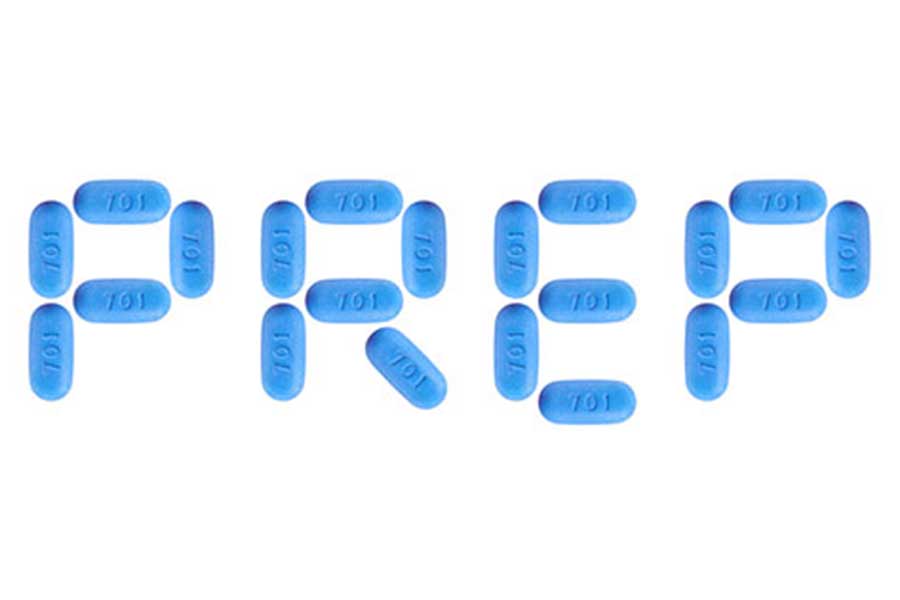Some of my patients call them “Skittles.” They’re small ovaloid morsels that evoke a particular sweetness and pleasure. And they have been a boon in the sex-positive movement in the queer community that has arisen to rival the privilege of relatively worry-free heterosexual sex. Skittles, of course, refers to Truvada (tenofovir disoproxil & emtricitabine), the first FDA-approved medication and currently the only CDC-recommended medication for use in HIV prevention, or pre-exposure prophylaxis (PrEP).
Truvada has not just been a cultural boon; it has been a public health transformation. Estimates vary, but thousands of HIV infections have likely been averted in the U.S. alone. It works well when taken correctly, and has a remarkably good safety profile. Its main detraction has always been, however, its price. While still under U.S. patent by its manufacturer, the retail cost of Truvada is between $1,600 and $2,000 per month or over $19,000 per year per PrEP patient. This year — 2020 — promises to bring some big changes to the PrEP world.
First, a newer version of Truvada is poised to hit the PrEP market. This drug, Descovy (tenofovir alafenamide & emtricitabine), received FDA approval for use in PrEP last October. Manufactured by the same company as Truvada, it contains a new version of the drug tenofovir that purports to have marginally fewer long-term kidney and bone side effects but also carries its own risk of increased weight and cholesterol. For the majority of PrEP patients, however, Truvada remains a perfectly effective and safe method of protection. Descovy has not yet reached the CDC PrEP guidelines, but it is likely not a coincidence that it was developed just in time for the emergence of generic versions of Truvada onto the American drug market.
Generic versions of Truvada have been available outside of the U.S. since early 2019. The Truvada and Descovy manufacturer has reason to be nervous about coming generic versions of Truvada to the U.S. Through its coordination of large-scale trials and expertise in navigating U.S. medical regulatory systems, this company has successfully cornered the multi-billion dollar American PrEP market. Generic PrEP looms large and threatens to cut into the considerable revenue that the monopoly commands.
Recent alarmism about Truvada, however, will potentially undercut this free-market competition. As illustrated in a recent article in the Philadelphia Inquirer (Dec. 30, 2019), the past year has seen a sudden rise in negative publicity about Truvada and its side effects — mostly on social media, and mostly promulgated by law firms seeking to recruit plaintiffs for class action suits against the pharmaceutical giant. Whether intentional or not, the consequences of this alarmism are potentially grave. Exaggerated campaign-style internet postings peddling misinformation about the side effects of Truvada have shaken the confidence of more than a few of my patients, and untold numbers of PrEP patients nationwide have stopped taking their Truvada. Furthermore, this alarmism has kicked off a public near-hysteria about Truvada, which some in the industry may hope will influence the CDC PrEP guidelines committee to coronate Descovy as the first-line PrEP drug in lieu of Truvada. By relegating any potential PrEP generic to second-line status, the CDC would effectively cement the high price of PrEP and the unaffordability of first-line PrEP across many of the communities that need it most. The well-timed litigation against this pharmaceutical company may ironically lead to a continuance of the company’s long-term monopoly over PrEP, and along with it, an outsized financial windfall.
This PrEP issue highlights an important debate in healthcare economics: at what point does a drug’s cost-benefit ratio rise high enough vis-à-vis existing options to preclude a label of “standard of care”? Do we chase the shiny new medication because it may be incrementally better for a few people, or do we commit to affordable medications for all? For the sake of much of the PrEP community and for the ultimate goal of ending the HIV epidemic, I hope that the CDC keeps Truvada and its generics as first-line options for PrEP, even as it likely adopts Descovy into the mix. My practice, for one, sees mostly patients who would happily continue consuming their “Skittles” — instead of Ferrero Rochers — if it would mean that all their friends could also continue popping them as a first-line act of empowerment.
